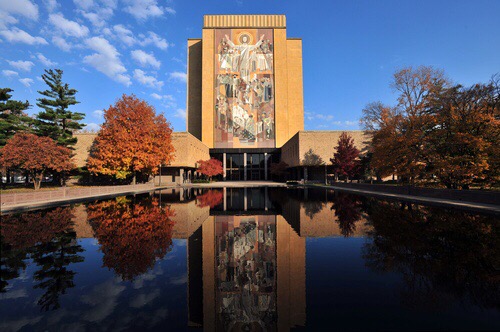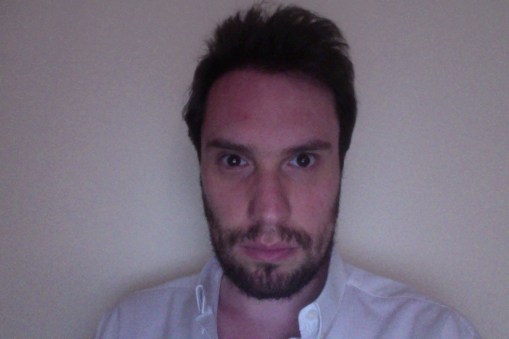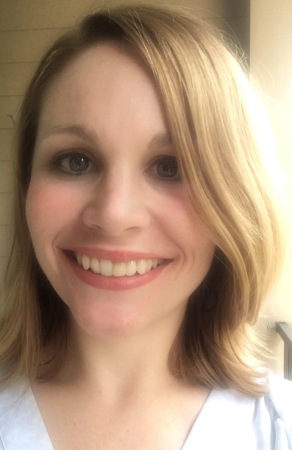




We’re delighted to announce a new partner for our project, the Institute for Ethics and Society at the University of Notre Dame Australia. Based in Sydney, the Institute for Ethics and Society is one of Notre Dame’s three national research institutes. The IES aims to foster ethical awareness in professional and social life. It does this through pursuing excellence in research and by providing leadership in Ethics Education across the University.
IES is hosting our principal investigator Candace Vogler as Distinguished Visiting Fulbright Professor from 19 August – 7 September 2017. During her visit, Candace Vogler will take part in the following suite of events:
Established in late 2009, the Institute’s Terms of Reference state that its purpose is “to promote the study of Catholic intellectual and moral tradition, with a particular focus on faith and ethics and their application and integration into the broader life of society”. In carrying out this purpose, the Institute is guided by four principal objectives: (i) to inform and support the teaching of ethics through all Schools and disciplines of the University and the integration of ethics into the teaching of all units; (ii) to inform and support the understanding and adoption of the Catholic Church’s recognition of the complementarity of faith and reason through all the University’s endeavours; (iii) to promote and undertake research into professional and social ethics, including political, legal and medical ethics and the relation between ethics and faith; and (iv) to identify and provide advice and commentary in the fields of ethics and faith and their practical application and integration into relevant current day social issues. Underlying all objectives is the desire to promote interdisciplinary teaching, discussion, scholarship and research. The Institute will draw on staff from all campuses and from all disciplines in undertaking its activities.

God, Virtue, & Moral Absolutes: Anscombe’s “Modern Moral Philosophy” at 60, a graduate student conference sponsored by the Nanovic Institute for European Studies, will take place at the University of Notre Dame on January 21-23, 2018.
Keynote Speakers
Alasdair MacINTYRE, University of Notre Dame
Cyrille MICHON, University of Nantes
Rachael WISEMAN, University of Liverpool
Jennifer A. FREY, University of South Carolina
In 1958, the English philosopher Elizabeth Anscombe published “Modern Moral Philosophy,” one of the most influential essays in contemporary philosophy. Reacting against a half-century of British moral philosophy, Anscombe charted a path to a revival of Aristotelian moral inquiry, boldly defending three controversial theses. First, that it is “not profitable for us at present” to engage in moral philosophy until there has been the development of “an adequate philosophy of psychology” (i.e. a proper understanding of action, habit, choice etc.). Second, that the concepts “moral obligation and moral duty” presuppose the existence of a divine lawgiver and, in the absence of a belief in such a deity, should be abandoned. Third, that twentieth-century English philosophers are separated by differences “of little importance,” with such authors generally rejecting the existence of absolute moral prohibitions, should consequences be sufficiently detrimental. These claims have played a large role in the forging of contemporary research projects on virtue theory, theological ethics, the history of moral philosophy, and other matters of practical and speculative importance.
Call for Abstracts
We welcome papers from a variety of fields of moral inquiry, including but not limited to philosophy, theology, political science, psychology, and law. Suggested topics include:
Please submit an abstract of no more than 300 words by October 1, 2017 to .
For more information in the full Call for Abstracts, click here.

Alberto Arruda was a participant in our 2017 Summer Seminar “Virtue, Happiness, and Self-Transcendence” and is a postdoctoral researcher in philosophy at the University of Lisbon.
During the various sessions of our seminar, the notion of dependence was often mentioned in one way or another. I have decided to write a brief note on this notion in the hope that it might spark a discussion amongst philosophers, theologians and psychologists alike. This note assumes the form of a reflection on a text; and author, that is, I think, a very unlikely candidate in the context of our sessions: Descartes. Perhaps for this reason, and given our prevalent Aristotelianism, I thought this exercise would be interesting, since it challenges some of our dearest assumptions.
A brief note on dependence
1
“I am not an animal!” protested Spartacus, the very same thought that famously puzzled Descartes in his Meditations. And even though both men were protesting in a similar way, they were not protesting about the same thing at all. While Descartes was complaining about the fact that he couldn’t possibly be reduced to the animal begotten by his parents, the slave was complaining about the fact that he could not be reduced to an animal just because someone had decided to treat him like one. But where the slave might have pointed to the fact that, much like his owner, he also had parents, and perhaps even siblings, who worried about him, Descartes would have maintained that the dependence exhibited by his animal nature did nothing more than conceal his real dependence on God. Now, this is a genuine difference. Although both complain about being reduced to something they know they are not, the nature of Descartes’ complaint is about concealment, while the slave’s is about what is, for him, painfully manifest.
If Descartes had lived to encounter, say, Beethoven’s death mask, perhaps he would have maintained, much like Aristotle, that the mask was not the likeness of Beethoven at all. But, where for Aristotle the now dead Beethoven was no longer Beethoven, I mean, that particular depiction was merely the depiction of a Beethoven now missing a part, Descartes would have maintained that the mask of the dead Beethoven was certainly not the likeness of the real Beethoven, but then again, no mask could ever have been – dead or alive.
So, an alive and well Beethoven, that is, an intact Beethoven as Aristotle would say, really never was ab initio Beethoven. And now, I can’t quiet imagine what privation meant for Descartes, nor what a status quo ante could have meant for Descartes in relation to both the deterioration and the many privations our bodies do suffer. But I do understand one, I suppose, fundamental aspect of his argument – namely, that the real Beethoven may very well still be somewhere (that is, if he, or it, is still somehow able to think). And this is not exactly the same as saying that the real Beethoven has only now genuinely come to be, I mean, now after the death of his animal part. For if we were really thinking about Beethoven’s soul, we would have to be thinking about the Beethoven who sinned, the one who sinned through that body, the body now depicted in that death mask. So this Beethoven, the dead Beethoven, was, even for Aristotle, who certainly did not puzzle about the salvation of his soul, not necessarily the Beethoven who used to sin and repent, but certainly the one who did all of those actions and composed all that music, the music that somehow many of us grow up with. But still, what about the question: who was the real Beethoven for Descartes? He was not the body depicted in his death mask – and we do have this intuition, especially when we miss someone who has died – so who was he?
And now we know that the reply is challenging and difficult, for he never was that body, nor his thoughts, and certainly not his actions. And so he was not part of the history we inherited. He was always, genuinely, his thinking, but not the falsity he sometimes thought about. Beethoven was, like I am, and so are you, his thinking when it was true. So the evil genius could have robbed him of a world, he could have robbed him of his acting, and I suppose of his sins and redemption, but he could not have robbed him of the faculty that God created, the faculty of proper thinking. And so, Descartes argued he was his thinking; he argued that he was his dependence on God, and now I say dependence, because he could not have created truth, for he was far from perfect, and also, because he could not exist without truth. So Descartes, and Beethoven, and you, and I are our dependence on God; we are, if you want, the faculty we exercise but have not begotten, and so we are all equal before God. Therefore, when any of us takes drugs, we are, for Descartes, so it seems to me, giving the biggest offence we can. We are polluting the very gift we received from God, destroying our election, and really, genuinely, destroying ourselves.
2
Another thought: Descartes somehow had the intuition that he was somewhere in his body, but not like a pilot is in a vessel. This takes away any hope we might have of putting matters in a way that is as clean and simple as talk about separable glassy essences, ghosts in machines and otherwise. And I think there is a lot in this that can be used to somehow detach his theory from an official doctrine of Cartesianism, although I do not dare to dispute that there is a great deal of merit in what has been achieved under this rubric.
But still, what about the thought concerning pilots and vessels? The Descartes of the Meditations never thought about something like occupying more than one body. I suppose such a thought experiment did not seem necessary to him, as it does to a lot of us nowadays. The uniqueness of occupying only one body seemed, perhaps, trivial to him. He did not argue much for it, and so he did not argue much against it. Given his hyperbole, he could have never conclusively known that he had occupied only one body; and I think that there would not be much advantage to doing so, since truly knowing what one is would not be improved by a putative change of body. So Descartes’ argument mentioned uniqueness of body, but not, as we would be tempted to think, in the service of some kind of uniqueness of experience. And now, I have to admit, that at least I do believe in such uniqueness of experience. And as I hinted at before, I do not find this uniqueness entirely void of theological significance either.
However, if we think about it, his metaphor is near perfect for his purpose. Any pilot is far more dependent on his or her vessel than Descartes thought he was on his body (at least this is what he wished to establish with his argument). No pilot is yet a pilot if he or she has never had a vessel, or at least the chance to pilot one. And the pilot who now lacks a vessel is certainly not half a pilot, although he or she is in danger of, perhaps, never again doing what a pilot does. And now we see that for Descartes what I truly am, my thinking, would still be possible even if I did not have a body, as long as God, who I truly depend on for my conservation, would grant me some true thoughts. And so, it seems, I am less dependent on my body for being me than a pilot is on a vessel for being a pilot, even though we are both equally dependent on God for existing at all.

This post is part of a series of interviews with our incoming class for the “Virtue, Happiness, & Self-Transcendence” 2017 Summer Seminar. Alberto Arruda is
postdoctoral researcher in philosophy at the University of Lisbon. Valerie Wallace is Associate Director, Communications, for Virtue, Happiness, & the Meaning of Life.
Tomorrow’s blog post is by Arruda, “The notion of dependence.”
Valerie Wallace: Where are you from?
Alberto Arruda: I am from Lisbon, Portugal. I am currently a postdoctoral researcher at the University of Lisbon.
VW: Tell me about your research.
AA: My research interests are mainly in the connections between the philosophies of mind and action, moral and political philosophy, and also Wittgenstein, Anscombe, Marx and Hegel.
More specifically, my most recent research interest is concerned with trying to understand philosophically what ‘worrying about someone’ means. By this expression I simply mean that I have been trying to think about what this characteristic exhibited by humans (worrying about each other) means in virtue ethics and the development of virtues, also regarding the notion of a person.
In relation to this, I have been trying to better understand the notion of perfectionism, especially how in some political systems perfectionism was both destructive of persons and the apparent justification of a higher good for that political community.
VW: What are your non-academic interests?
AA: My main non-academic interest is music.
VW: What are you most looking forward to about this summer’s seminar?
AA: I am looking forward to serious and exciting discussions, and to learning about new perspectives that will help me when considering the problems I study.

Aristotle emphasized the relation of particular social roles, or vocations, to particular virtues. For instance, soldiers should have the virtue of courage. Similarly, justice is central to involvement in politics. What about science? Are there virtues particular to being a good scientist? Is there something distinctive about a vocation to be a scientist? Contemporary virtue ethics offers at least two views of the relevance of virtue in science: facilitation of a flourishing society and following one’s individual dispositions.
First, pursuing science may be a meaningful way for an individual to contribute to the flourishing of society. Generally speaking, this is an uncontroversial response–don’t all professions have this aim? So this is insufficient to justify science as an alternative to other practices. The second view offers a solution here: an individual may be more suited–in light of one’s circumstances, dispositions, and skills–to achieve such flourishing through science than through other means. Not everyone is called to be a politician or social worker. Some are more suited to the vocation of science.
Taking up the second view in more detail, what kinds of dispositions are important to being a virtuous scientist? Dispositions and skills undoubtedly play an important role in the development of a scientist. Some of these dispositions may be deeply seated in an individual’s psychology, such as one’s ability to focus on the details relevant to a given goal. Bryan Brown and James Gee also emphasize the importance of language skills as a means to engage in practices like science. Further, science is a practice particularly suited to pursuing epistemic ends, aligning it most closely with personality traits like intellect and openness to experience, which are tendencies to pursue intellectual goals. These traits can enable a strong motivation to enter science, which could then serve to develop one’s scientific potential. However, even such motivation is meaningless, in itself, if a budding scientist lacks the capacity to do good scientific work. If one is frequently dishonest, lacks the discipline to collect and analyze data systematically, and is too easily frustrated by the inevitable disappointments that arise in scientific work, one is unlikely to do good work let alone become a virtuous scientist. While this doesn’t mean that we should expect anyone to be a perfect scientist at the outset, some people may just not be well suited to scientific pursuits.
Context also matters given the importance of culture to the development of dispositions. If one lacks meaningful opportunities to learn to be a scientist, one will likely take the opportunities to learn that exist in one’s developmental context in another domain. Despite this, some individuals growing up with limited exposure to the science and mathematics make extraordinary contributions to it (for example Srinivasa Ramanujan, a leading mathematician of the early 20th century), so circumstance alone is clearly not enough for a full determination. At the other extreme, some fields may be inundated with qualified candidates due to their status and prestige (see Good Work on contemporary genetics). If one’s field is pursued by too many, then pursuing other opportunities may be more effective in supporting human flourishing and thus more virtuous. This is both because competition for resources can lead to careerism and undermine the field and because there are likely other areas where an individual’s effort may be productive.
What kind of account then would mark a virtuous calling to do science? First, it should fit one’s dispositions, as discussed above, with the proper motives and capacities. Second, an aspiring scientist should pursue science that has a worthwhile possibility of contributing to human flourishing. Thus, a virtuous vocation to science could arise when science is an appropriate pursuit for this individual amidst other available pursuits. This is not to say that other pursuits don’t have a place in the life of a scientist. It may well be the case that pursuing scientific work serves a higher calling, as in practicing science to support environmental causes or to provide for one’s family. It could still be appropriate to think of science as a calling in such cases, but science need not be one’s ultimate or highest calling.
Timothy Reilly is a Postdoctoral Fellow in the Developing Virtues in the Practice of Science Project. He is a developmental psychologist whose work draws from a variety of approaches, including positive psychology, moral development, sociocultural theory, and action theories of development. He was one of the participants in our 2017 Summer Seminar, Virtue, Happiness, and Self-Transcendence.
This post first appeared on the blog Origins.Natures. Futures.

This post is part of a series of interviews with our participants for the “Virtue, Happiness, & Self-Transcendence” 2017 Summer Seminar. Carissa Phillips-Garrett is Visiting Assistant Professor at the University of Houston. Valerie Wallace is Associate Director, Communications, for Virtue, Happiness, & the Meaning of Life.
Valerie Wallace: Where are you from?
Carissa Phillips-Garrett: I grew up in San Diego and it still feels like home even though it’s been almost 10 years since I lived there full-time. After undergrad and before starting my PhD, I lived in the Republic of Georgia, South Korea, and Canada, before moving to Houston where I live currently. I am finishing my PhD in philosophy at Rice University, and after living in Houston longer than I’ve lived anywhere else as an adult, Houston feels like home, too.
VW: Tell me about your research.
CPG: I work primarily at the intersection of ethics, moral psychology, social and political philosophy, and ancient philosophy. Because of my interest in virtue, flourishing, and political communities, I am naturally drawn to Aristotle, so my work involves bringing Aristotle into conversation with contemporary philosophers.
My research as a whole concerns relationships (both personal and broadly social) and the common good. I am interested in the social ties that bind us to one another, the virtues, emotions, and practices that sustain and undermine these ties, and the moral demands that arise from our relationships to one another. I also explore the role that moral identity plays in sustaining virtue and happiness.
The escalating social and political tensions over the last few years highlight the importance of learning to listen and dialogue with those who are very different than ourselves. My work is now turning to examine the role that mercy, charity, empathy, and social relationships might play in promoting understanding and a commitment to the common good within our social and political communities.
VW: What are your non-academic interests?
CPG: I enjoy traveling and exploring new places, reading (mainly historical fiction and philosophical sci fi), playing board and card games, and visiting museums. I also love the the beach and water sports more generally.
VW: What are you most looking forward to about this summer’s seminar?
CPG: I’m really looking forward to participating in interdisciplinary conversations about the relationship between goodness and happiness, how we develop ethically, and the value of friendship. While I really enjoy my own discipline (philosophy), I am looking forward to having discussions and being challenged by participants from other disciplines.
Kami adalah bintang utama di dunia togel online, diakui secara internasional dan di seluruh Asia! Dengan kualitas yang luar biasa, komitmen kuat, dan profesionalisme yang tak tergoyahkan, Bandar Togel telah menjaga reputasi ini selama bertahun-tahun di dunia judi toto togel. Mari bergabung dan rasakan semangat serta kualitas terbaik bersama kami!
Situs togel online resmi yang menawarkan pasaran Hongkong menjadi salah satu pilihan Toto Togel aman dan terpercaya bagi pemain. Dengan metode deposit yang fleksibel seperti Dana, pemain dapat dengan mudah menyetorkan modal mereka tanpa kesulitan. Pasaran HK menawarkan hasil yang adil dan cepat, menjadikannya salah satu pasaran yang paling diminati oleh para pemain togel.
Kemudahan transaksi menjadi salah satu alasan pemain memilih situs togel tertentu. Dengan pilihan deposit menggunakan Dana dan Gopay, beberapa Togel Terbesar menawarkan proses yang cepat dan aman untuk pemain, sekaligus menyediakan pasaran lengkap dengan peluang besar.
Menang di Bo Togel bukan hanya tentang keberuntungan; ada strategi yang dapat meningkatkan peluang Anda secara signifikan. Dari memilih nomor yang tepat hingga memahami pasaran yang paling menguntungkan, artikel ini akan membahas strategi terbaik untuk meraih Bo Togel Hadiah Terbesar. Dengan sedikit perencanaan dan analisis, Anda dapat meningkatkan kesempatan untuk meraih kemenangan besar di Bo Togel.
Pengembang Link Slot Gacor seperti NetEnt dan Play'n GO terus berinovasi dengan menghadirkan permainan slot yang kaya grafis, efek suara yang memukau, serta animasi yang memikat.